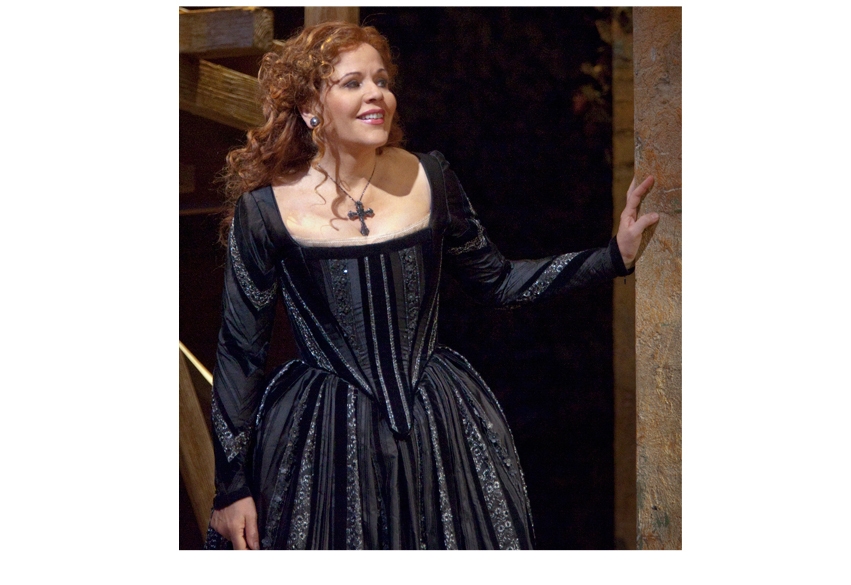Having seen and been most impressed by two New York Met relays of Wagner operas on the big screen, I was interested to see how the largely close-up medium would cope with a Handel opera, where the challenges are quite different. Both composers have single characters singing for large stretches of time, but, while Wagner’s are always involved in a process of feeling, so that there is a sense of exploration at every moment, Handel’s are immersed in states of feeling.
In da capo arias they often move from rage to resolution, or something of the kind, but then revert to the original state and its music, presumably to endow their arias with symmetry; though it has been suggested that Handel regards emotional states as inherently obsessional, so that the figures he portrays are all locked, for the length of an aria at least, in a feeling that they are unable to emerge from. That seems to me to be absurd, not so much as an account of the peculiar nature of Handel’s operas, as of the way people in fact feel, unless they are trapped or basking in a particular state, which is more the exception than the rule.
Anyway, for cinematic purposes it is tricky to have a singer in close-up endlessly repeating the same words, and tempting for the relay producers to let their cameras wander over the scenery, or to get the director — in this case Stephen Wadsworth — to encourage his singers to fidget. Neither occurred in this relay of Rodelinda, one of Handel’s greatest operas, though still, to my mind, caught in the limitations of the da capo form.
When Glyndebourne did it in the late 1990s, it was staged almost as a silent black-and-white movie with a soundtrack of genius.








Comments
Join the debate for just £1 a month
Be part of the conversation with other Spectator readers by getting your first three months for £3.
UNLOCK ACCESS Just £1 a monthAlready a subscriber? Log in